Adil Najam
I am most pleasantly surprised that readers have so quickly figured out the mystery man in our latest ATP Quiz. Since they have, let me add a little more information and let the discussion continue.
I am not sure, however, how many readers know of Muhammad Asad or of his connection to Pakistan. Let me confess that until fairly recently I did not; at least not of the Pakistan connection. As I have gotten to know more about this connection, I have gotten more and more intrigued – all the more so because there is relatively little in his own writings or that of others about this.
But lets start from the beginning.

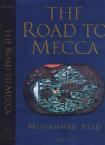 Asad was born in 1900 as Leopold Weiss to Jewish parents in Lvov (then part of the Habsburg Empire, now in Ukraine). He moved to Berlin in 1920 to become a journalist and traveled to Palestine in 1922. It was there that he first came into contact with Arabs and Muslims and began a long journey into Muslim lands and minds that eventually led to his embracing Islam in 1926. His bestselling autobiography Road to Mecca (published 1954) recounts these years in vivid and captivating detail., including his adventures in Arabia and in working with King Ibn Saud and the Grand Sanusi, amongst others.
Asad was born in 1900 as Leopold Weiss to Jewish parents in Lvov (then part of the Habsburg Empire, now in Ukraine). He moved to Berlin in 1920 to become a journalist and traveled to Palestine in 1922. It was there that he first came into contact with Arabs and Muslims and began a long journey into Muslim lands and minds that eventually led to his embracing Islam in 1926. His bestselling autobiography Road to Mecca (published 1954) recounts these years in vivid and captivating detail., including his adventures in Arabia and in working with King Ibn Saud and the Grand Sanusi, amongst others.
Later in his life, after retiring in Spain, he spent 17 years working on an English translation of the Quran which was first published in 1980. Many consider this to be one of the finest English translation of the Quran – some argue this is because he himself was fluent in bedouin Arabic which is closest to the Arabic in the Quran, others suggest that since he was himself a European and wrote in more understandable idiomatic English his translation is most accessible to non-Arabic speakers.
As a lay-reader who ver the years has read a number of English translations, including his, I do find Asad’s translation – The Message of the Quran – to be easier to read than those by Abdullah Yusuf Ali or Marmaduke Pickthall which are amore formal and literal translations. Unlike the translations by Prof. Ahmed Ali (my particular favorite) and by Thomas Cleary which are also in contemporary idiom and very readable, the Mohammad Asad translation has the added virtue of also having commentary and explanations, and the new edition is wonderfully presented, printed in the highest quality, and with tasteful calligraphy. All in all, Mohammad Asad’s The Message of the Quran is the translation that I now recommend to friends, Muslims as well as non-Muslims.
But I digress. Much as I like Muhammad Asad’s translation of the Quran and especially in its new printing, that is not the subject of this post. The subject of the post is his ‘Pakistani connection’ and also why we do not find much about that connection in his writings. Here is what we know.
By the early 1930s Asad had gotten rather disenchanted by King Ibn Saud and his religious advisors (see Road to Mecca) and had begun travelling Eastwards into other Muslim lands. This brought him to British India and there he met and became a good friend of Dr. Mohammad Iqbal. Indeed, Iqbal encouraged him to write his book Islam at the Crossroads (published 1934); whose cover has the following testimonial from Iqbal:
“I have no doubt that coming as it does from a highly cultured European convert to Islam, it will prove an eye-opener to our younger generation.” Muhammad Iqbal.
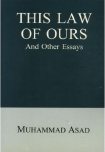
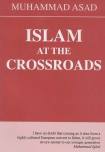
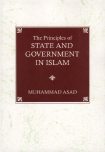
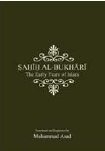
During World War II imprisoned him in a camp for enemy aliens (because of his Austrian nationality) while his father was interned by the Nazis because he was Jewish. After the War he fervently threw his all behind the demand for Pakistan. Upon the creation of Pakistan, he saw himself very much a ‘Pakistani’ as did those he worked with (reportedly even took to wearing the achkan). In 1947 he became the director of the Department of Islamic Reconstruction in West Pakistan and worked on a treatise with ideas for the Constitution of Pakistan. Many of these ideas (which were mostly related to creating a multi-party parliamentary democracy) were reproduced in his later books but he was not very successful in getting them implemented.
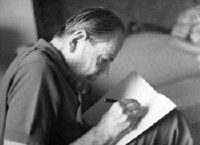 In 1949 Asad joined the Pakistan Foreign Ministry as head of the Middle East Division and eventually in 1952 came to New York as Pakistan’s representative to the United Nations. Here he met the woman who would become the last of his wifes (Pola Hamida). Whether it was the fact that he married her and divorced his earlier wife or the messiness of Pakistani politics, it was in this period that he fell out with the powers in Pakistan and resigned from the Foreign Ministry. He decided to stay on in New York to write Road to Mecca, which became a major success. He never really returned to Pakistan (although, supposedly, Gen. Zia ul Haq tried to get him back) and died in Europe in 1992.
In 1949 Asad joined the Pakistan Foreign Ministry as head of the Middle East Division and eventually in 1952 came to New York as Pakistan’s representative to the United Nations. Here he met the woman who would become the last of his wifes (Pola Hamida). Whether it was the fact that he married her and divorced his earlier wife or the messiness of Pakistani politics, it was in this period that he fell out with the powers in Pakistan and resigned from the Foreign Ministry. He decided to stay on in New York to write Road to Mecca, which became a major success. He never really returned to Pakistan (although, supposedly, Gen. Zia ul Haq tried to get him back) and died in Europe in 1992.
It was his estrangement with the Pakistan government that pushed him back into writing and produced two amazing works – Road to Mecca and The Message of the Quran. However, here once again is a story of one who wished to give his all to Pakistan and we did not let him.

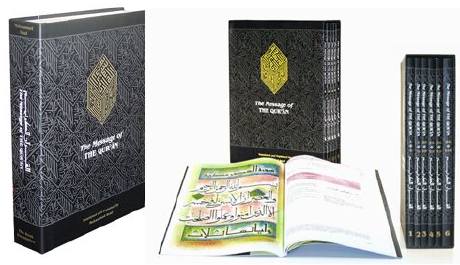
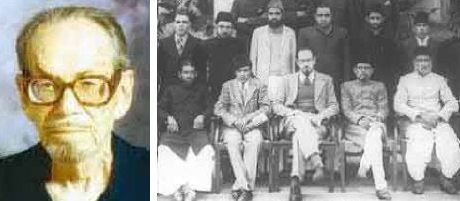



















































It is a pitty that during my Middle school, high scholl and college years in Pakistan we were complled to read the lessons on Nepolian Bonapart, Abraham Lincoln, George Washington and madam Cury but were left completely ignorant of the FIRST AMBASSODOR OF PAKISTAN in the USA and a true believer of Islam and a devout admirer of the prophet Muhammad Sallallaho Aliahe wa Sallam. It seems like the one signs of the nation that are bound to fall is that they look for heros in other nations and religions while ignoring their own.
To ATP
Thankyou for bringing the spot light on a great scholar and thinker.A brave man who had the courage to say what he believed in
His translation of the quran is a yardstick that I personally use to measure other translations.
I would appreciate if readers of the post can suggest similar thought provoking commentaries of the Quran
I am curious as to my namesake, Mr. Zahid Aziz’s comment . Is Mr. Aziz insinuating that Mohd Asad was an Ahmadi and, therefore, his interpretation should be rejectd since Ahamdis have been declared a heretical sect in Pakistan (which I believe is a disgrace)?
Lest I am misunterpreted I should make clear that I am not an Ahmadi nor, for that matter, am any thing else – just a man in an incessant search of understanding. Mr. Asad’s ‘Road to Mecca’ deeply resonated with me for I myself had been searching for a logical and rational approach to understanding Islam which had eluded me until I stumble upon Mr. Asad, and what a man! Having read ceaselessly and God knows how many books, I have never been touched like this mantouched me through his pen. This is what I have been lokking for all this time, I exclaimed to myslef (it never bothered or concerned me that he closely identified with Ahmadis and had, in fact, converted to Islam at the hands of an Ahmadi Imam in Germany)! I literally wept when reading his description of the Hajj near the end of the book. I have lived overseas for nearly thirty years (twenty five in the U.S. and last five in Oman) and am a U.S. citizen. His book lead me to the discovery of a large number of writings from the westen converts – who were not born into it but converted to Islam in full consciousness and understanding with their hearts and minds. These are the people with moral courage to give up everything familiar and take a plunge based on their convictions. How many of us can say that about overselves? We are still fighting and finger pointing at each other with self righteous smugness. I then ordered and read his ‘Message of the Quraan’ and can probably say (for myself) that between this book and Abdullah Yousuf Ali’s translationof the Quraan – I am very satisfied (mind you, I have read several others including the official Saudi Arabian version and in Urdu the Ahle-Hadith version – very amateurish in my view).
I will be happy to supply the names of some of these people and their writings for a true unbiased and honest approach to inderstanding of Islam.
As for us: we belive since we are born into it, we don’t need to learn Islam. I shall leave you with a little story:
In Texas, in summertime, after the rains there sprout up in the fields these anthills infested by red ants that are posionous and quite dangerous. So, as a homeowner, one of the chores you do is to inspect your lawn and backyard after a major rain for such infestation and immediately pour insecticide on these anthill before anyone, especially, a child can step onto one. So they have a saying down there: ” Your house is on fire while you are pissing on anthills….” Who does this remind us of?
Asad’s Message of the Quran was first published in around 1962 in the form of part 1, covering the first 9 chapters of the Quran. The publisher was the well-known Rabita Al-Islami of Saudi Arabia. Then it was noted that on several verses he had expressed exactly the same view point as that in the English commentary of the Quran by Maulana Muhammad Ali (d. 1951), the Lahore Ahmadiyya leader. In particular on the issue of whether Jesus died a natural death or was raised bodily to heaven, Asad had expressed the same view as the Ahmadis.
The publishers recalled his book and destroyed it. Asad then continued to complete his work and published the full work, as we know, in 1980 or so.
When Asad was in Lahore during the 1940s he used to meet Maulana Muhammad Ali. In fact, the Maulana has mentioned him (though not mentioned meeting him) in the Preface of his book ‘A Manual of Hadith’. There is even a person alive today in the USA, Colonel (retired) Mahmud Shaukat, who remembers Asad in Pakistan, and he recalls that Asad also used to visit another prominent Lahore Ahmadi, Dr Saeed Ahmad (d. 1996, and head of Lahore Ahmadiyya Movement from 1981).
When Asad’s full work appeared in 1980, I reviewed it. No doubt it is a work of great scholarship and merit. However, I referred to the statement by Asad that it was as a result of learning Arabic from Bedouins of Arabia that he could properly understand the meaning of the Quran. I pointed out that if you ask a Bedouin about the word ‘raf’ as used about Jesus in the Quran, the Bedouin will tell you that it means that Allah lifted Jesus physically to heaven. But that is not Asad’s view! I gave some other similar examples as well. An understanding of statements in the Quran is not based only on language but also on the principles laid down in the Quran.
The acclaim given to Asad’s work shows, in a way, the mental confusion and lack of integrity in the Muslim world. Maulana Muhammad Ali’s commentary is denounced as heretical for expressing certain interpretations in several places, but the same interpretations are to be found in Asad’s commentary! In fact, in the interpretation of some stories of the prophets, Asad has departed more from the traditional views than Maulana Muhammad Ali.
We have just finished the first documentary film about Muhammad Asad, a feature lenght movie entitled “A Road To Mecca.” In fact the picture of the horse-cart in the article above is from our website, it is from one of the scenes of the film that we shot in Lahore, Pakistan. The film will have a theatrical release in Europe and the USA and will later be released on DVD.
More information can be found on
http://www.aroadtomecca.com